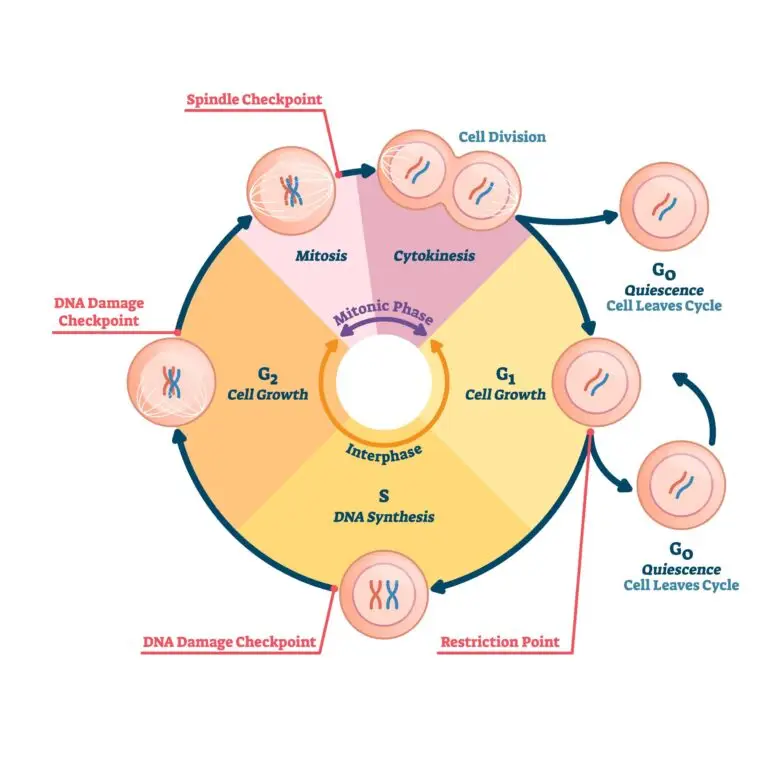Cell Cycle

Table of Contents
What is the Cell Cycle?
The cell cycle is the ordered sequence of events that a cell undergoes in its lifetime, leading to the division of a single cell into two genetically identical daughter cells. It is a fundamental process in multicellular organisms’ growth, development, and maintenance.
The cell cycle consists of distinct phases with specific activities and checkpoints to ensure accurate progression and successful cell division.
Phases of the Cell Cycle
Interphase
The majority of the cell cycle is spent in interphase, which is further divided into three subphases:
- G1 (Gap 1) Phase: Cell growth and normal metabolic processes occur.
- S (Synthesis) Phase: DNA is replicated, ensuring each daughter cell receives a complete set of genetic material.
- G2 (Gap 2) Phase: Additional growth and preparation for cell division take place.
Mitotic (M) Phase:
The actual cell division occurs in this phase, consisting of:
- Mitosis: The nucleus divides, ensuring each daughter cell receives a complete set of chromosomes.
- Cytokinesis: The cytoplasm is divided, resulting in the formation of two distinct daughter cells.
Regulation and Checkpoints
The cell cycle is rigorously regulated to guarantee precise and controlled cell division. There are several checkpoints throughout the cell cycle to ensure that cells divide correctly and at the appropriate time. These checkpoints are critical junctures where the cell evaluates whether conditions are right to proceed to the next phase.
The first major checkpoint is at the end of the G1 phase, where the cell decides whether it is ready to enter the S phase and begin DNA replication. Factors assessed include cell size, nutrient availability, and DNA integrity.
Another checkpoint occurs at the G2-M transition, where the cell checks if all DNA has been replicated accurately and if the cell is in proper condition to begin mitosis. During mitosis, especially at the metaphase-anaphase transition, there is a checkpoint to ensure that all chromosomes are correctly attached to the spindle apparatus before the cell proceeds with chromosome separation.
Cell Cycle Control System
- The cell cycle is regulated by a complex network of proteins and signaling pathways.
- Cyclins and cyclin-dependent kinases (CDKs) play key roles in coordinating the progression through different phases.
Importance of the Cell Cycle
The cell cycle is essential for growth, tissue repair, and the maintenance of a constant number of cells in multicellular organisms. Uncontrolled cell cycle progression can lead to diseases, including cancer.
Related Links
Allele
Chromatid
Genome
Mutation